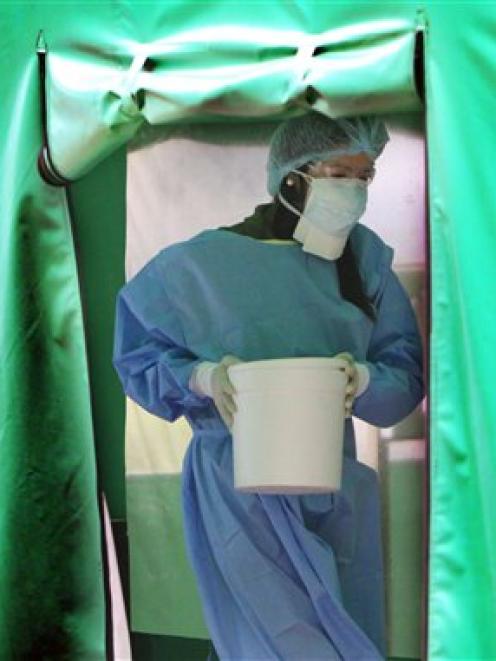
But countries could use emergency provisions to get the vaccines out quicker if they decide their populations need them, Marie-Paule Kieny, director of WHO's Initiative for Vaccine Research, said during a news conference.
The swine flu viruses currently being used to develop a vaccine aren't producing enough of the ingredient needed for the vaccine, and WHO has asked its laboratory network to produce a new set of viruses as soon as possible.
So far, the swine flu viruses being used are only producing about half as much "yield" to make vaccines as regular flu viruses.
Last week, WHO reported nearly 95,000 cases of swine flu worldwide including 429 deaths. Most people who get the virus only experience mild symptoms and don't need treatment to get better.
In a presentation to WHO's vaccines advisory group last week, Kieny said a lower-producing vaccine would significantly delay the timeline for vaccines. That could complicate many Western countries' plans to roll out vaccines in the fall.
British Health Minister Andy Burnham promised that vaccines would start arriving in the U.K. in August - and predicted the country could see up to 100,000 cases a day by the end of that month.
Before countries can start any mass swine flu vaccination campaigns, the vaccines need to be vetted by regulatory authorities for safety issues. That means testing the vaccines in a small number of humans first, which can take weeks or months.
"I think it will be a very significant challenge to have vaccines going into peoples' arms in any meaningful number by September," said Michael Osterholm, director of the Center for Infectious Diseases Research and Policy at the University of Minnesota.
"At this point, it is still is an issue of when will it be available, who will get it, and what will be the dose?"
Kieny said many of those questions remain unanswered at the moment. But she said WHO's vaccine advisory group recommended that health care workers receive the first swine flu shots since they are on the front lines of the global outbreak.
On Monday, British health authorities said a family doctor died over the weekend after contracting swine flu.
WHO's vaccine experts recommend that countries decided that certain groups should get the vaccine first - like pregnant women, people with chronic respiratory problems or obesity, children, and possibly young to middle-aged adults, who have been disproportionately affected by the virus.
The decision to start vaccinating people against swine flu - which so far remains a mild virus in most people - will ultimately be a gamble, since there will be limited data on any vaccine. Until millions of people start receiving the shots, experts will not know about rare and potentially dangerous side effects.
The public health community may still be scarred by the U.S.' disastrous 1976 swine flu vaccination campaign, which was abruptly stopped after hundreds of people reported developing Guillain-Barre syndrome, a paralyzing disorder, after getting the flu vaccine.
Several drugmakers are currently considering using adjuvants, ingredients used to stretch a vaccine's active ingredient, which could allow for many more vaccine doses. But little or no data exists on the safety of vaccines with adjuvants in populations including children and pregnant women. And in the U.S., there are no licensed flu vaccines that use adjuvants.




